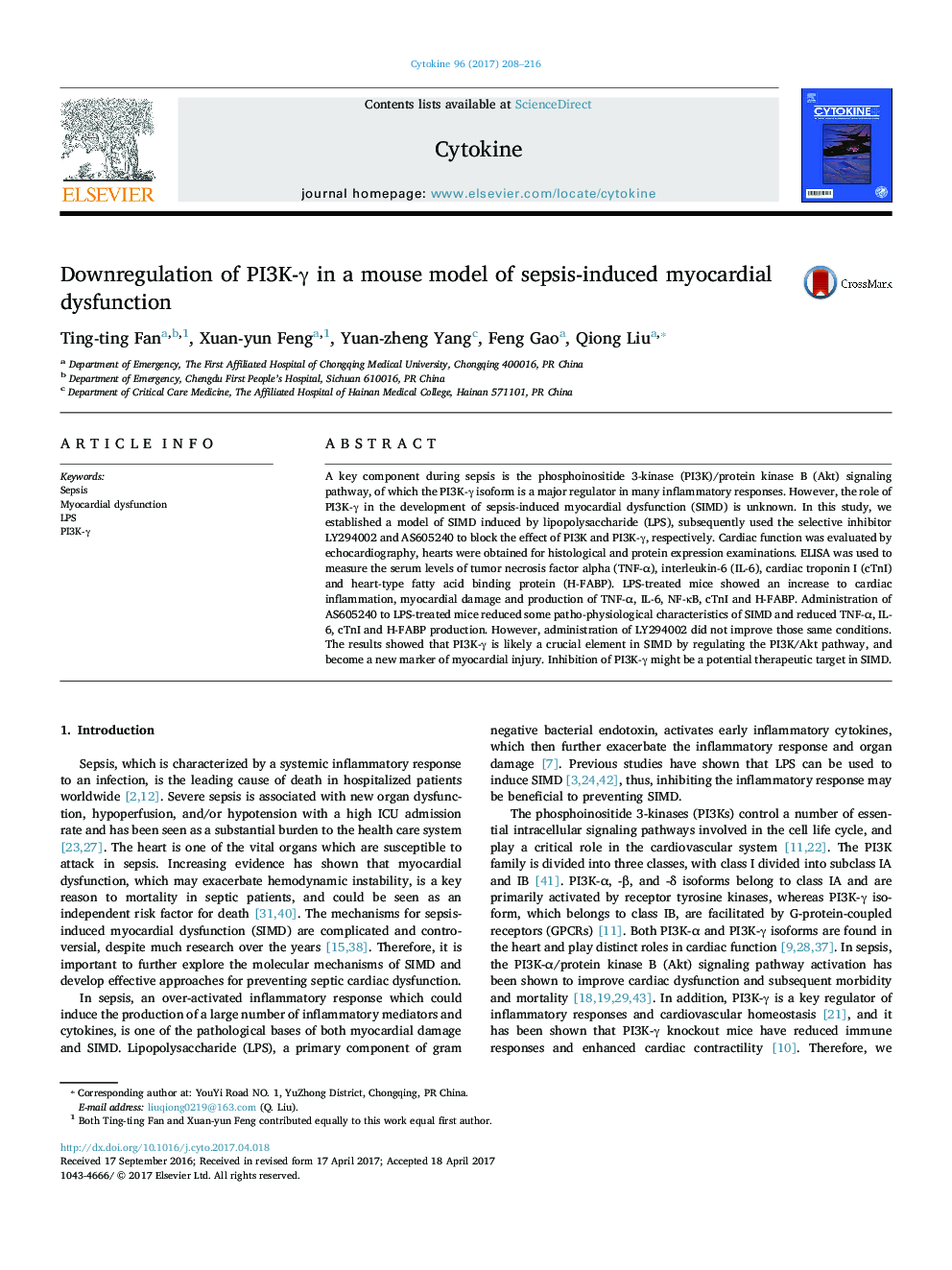| Article ID | Journal | Published Year | Pages | File Type |
|---|---|---|---|---|
| 5586995 | Cytokine | 2017 | 9 Pages |
Abstract
A key component during sepsis is the phosphoinositide 3-kinase (PI3K)/protein kinase B (Akt) signaling pathway, of which the PI3K-γ isoform is a major regulator in many inflammatory responses. However, the role of PI3K-γ in the development of sepsis-induced myocardial dysfunction (SIMD) is unknown. In this study, we established a model of SIMD induced by lipopolysaccharide (LPS), subsequently used the selective inhibitor LY294002 and AS605240 to block the effect of PI3K and PI3K-γ, respectively. Cardiac function was evaluated by echocardiography, hearts were obtained for histological and protein expression examinations. ELISA was used to measure the serum levels of tumor necrosis factor alpha (TNF-α), interleukin-6 (IL-6), cardiac troponin I (cTnI) and heart-type fatty acid binding protein (H-FABP). LPS-treated mice showed an increase to cardiac inflammation, myocardial damage and production of TNF-α, IL-6, NF-κB, cTnI and H-FABP. Administration of AS605240 to LPS-treated mice reduced some patho-physiological characteristics of SIMD and reduced TNF-α, IL-6, cTnI and H-FABP production. However, administration of LY294002 did not improve those same conditions. The results showed that PI3K-γ is likely a crucial element in SIMD by regulating the PI3K/Akt pathway, and become a new marker of myocardial injury. Inhibition of PI3K-γ might be a potential therapeutic target in SIMD.
Keywords
Related Topics
Life Sciences
Biochemistry, Genetics and Molecular Biology
Endocrinology
Authors
Ting-ting Fan, Xuan-yun Feng, Yuan-zheng Yang, Feng Gao, Qiong Liu,
